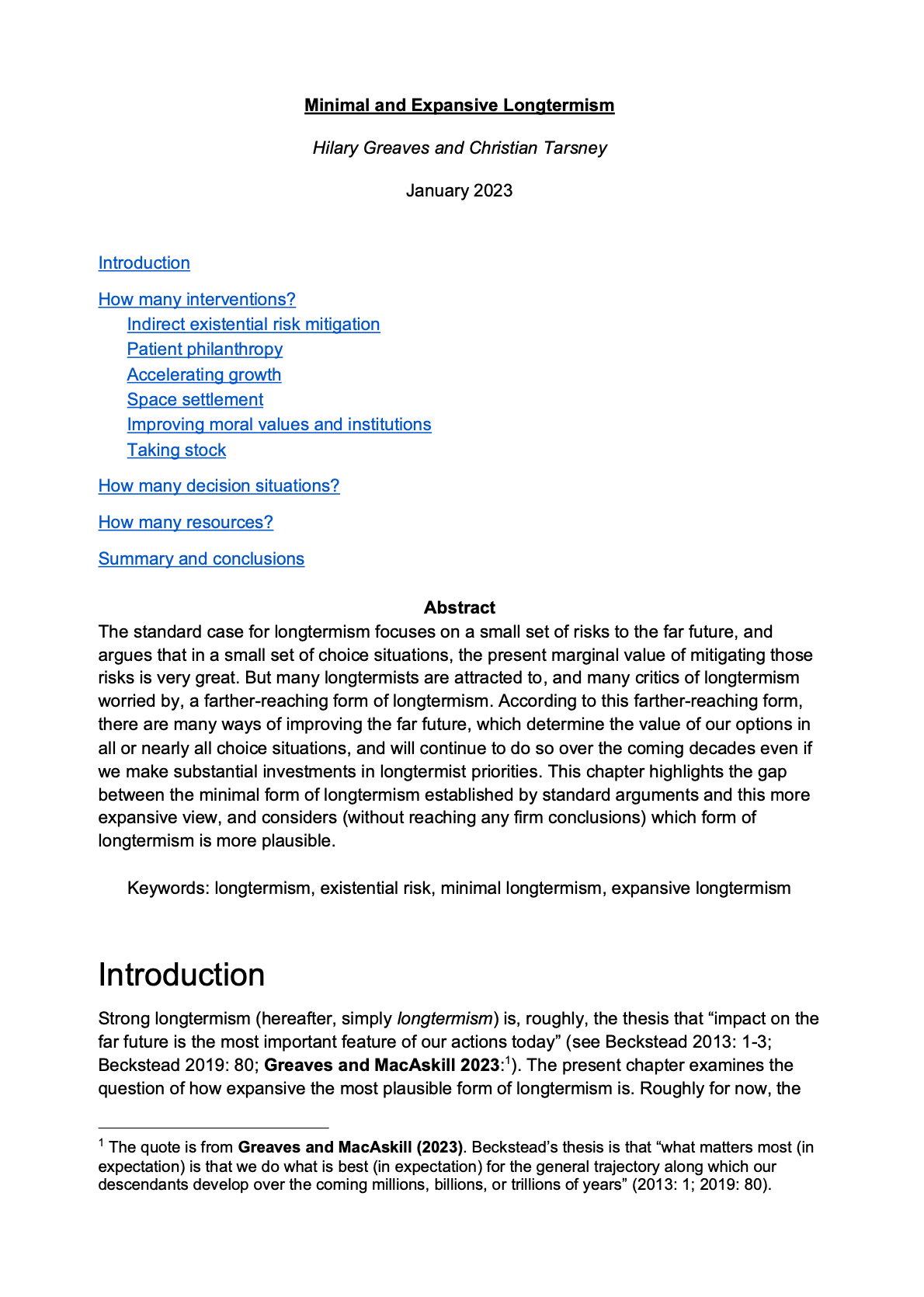Minimal and Expansive Longtermism
Hilary Greaves (University of Oxford) and Christian Tarsney (Population Wellbeing Initiative, University of Texas at Austin)
GPI Working Paper No. 3-2023, forthcoming in Essays on Longtermism
The standard case for longtermism focuses on a small set of risks to the far future, and argues that in a small set of choice situations, the present marginal value of mitigating those risks is very great. But many longtermists are attracted to, and many critics of longtermism worried by, a farther-reaching form of longtermism. According to this farther-reaching form, there are many ways of improving the far future, which determine the value of our options in all or nearly all choice situations, and will continue to do so over the coming decades even if we make substantial investments in longtermist priorities. This chapter highlights the gap between the minimal form of longtermism established by standard arguments and this more expansive view, and considers (without reaching any firm conclusions) which form of longtermism is more plausible.
Other working papers
Meaning, medicine and merit – Andreas Mogensen (Global Priorities Institute, Oxford University)
Given the inevitability of scarcity, should public institutions ration healthcare resources so as to prioritize those who contribute more to society? Intuitively, we may feel that this would be somehow inegalitarian. I argue that the egalitarian objection to prioritizing treatment on the basis of patients’ usefulness to others is best thought…
Moral demands and the far future – Andreas Mogensen (Global Priorities Institute, Oxford University)
I argue that moral philosophers have either misunderstood the problem of moral demandingness or at least failed to recognize important dimensions of the problem that undermine many standard assumptions. It has been assumed that utilitarianism concretely directs us to maximize welfare within a generation by transferring resources to people currently living in extreme poverty. In fact, utilitarianism seems to imply that any obligation to help people who are currently badly off is trumped by obligations to undertake actions targeted at improving the value…
Calibration dilemmas in the ethics of distribution – Jacob M. Nebel (University of Southern California) and H. Orri Stefánsson (Stockholm University and Swedish Collegium for Advanced Study)
This paper presents a new kind of problem in the ethics of distribution. The problem takes the form of several “calibration dilemmas,” in which intuitively reasonable aversion to small-stakes inequalities requires leading theories of distribution to recommend intuitively unreasonable aversion to large-stakes inequalities—e.g., inequalities in which half the population would gain an arbitrarily large quantity of well-being or resources…

